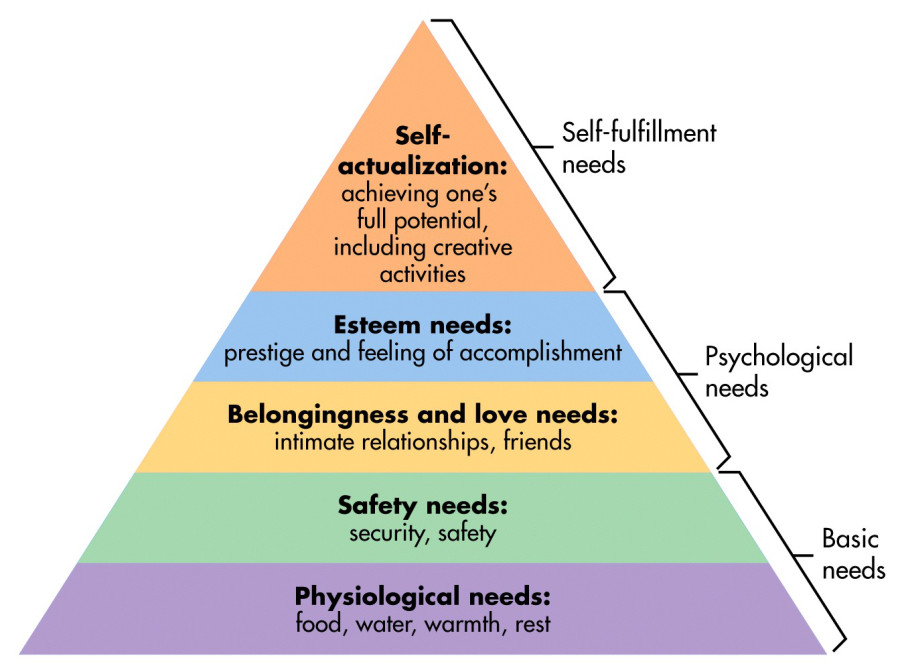The Link Between Trauma & Low Self-Esteem

Trauma and low self-esteem are closely connected. When a person experiences trauma, especially early in life as the brain is still developing and making connections between experience and emotion, the trauma can have a significant impact on their sense of self.
This has been well documented in studies with victims of sexual abuse, but it can also affect victims of poverty and food insecurity, emotional abuse or neglect, etc.
Trauma often causes the brain to enter a fight-or-flight response. During this type of biological response, the amygdala creates a link between memories of situations where you were in danger and emotion. The result is that when you feel that emotion, your brain can signal to your body to “feel” the danger. While this is a safety response on behalf of the body, it can have a negative impact on how a person view’s him or herself.
When one’s sense of self is low and/or insecure, it is difficult to find fulfillment from relationships, from work or school, or from setting goals. This perpetuates the cycle of low self-esteem and leaves the person feeling hopeless about his or her future.
Abraham Maslow’s Hierarchy of Needs
What is Abraham Maslow’s Hierarchy of Needs, and what does it have to teach parents and caregivers of children with trauma?
Abraham Maslow’s Hierarchy of Needs is a psychological framework that describes human behavior and personal development created by renowned psychologist Abraham Maslow in 1943. Maslow’s hierarchy of needs describes the sequence of personal needs that motivate human behavior which identifies five levels of needs:
- Physiological
- Safety
- Belonging and love
- Eteem
- Self-actualization

Credit: School of Life©
Maslow used this framework to explain why humans behave in certain ways and it applies to parents and caregivers of children with trauma. He proposed that humans are motivated by deficiency needs that arise from deficiencies in their physical, emotional, and social conditions. These deficiencies motivate us to move up through each layer of the pyramid, ultimately reaching self-actualization at the peak.
When basic needs are unmet, academic, social, and other needs can be unfulfilled.
Abraham Maslow’s hierarchy of needs is a popular model for understanding human motivation. It suggests that we first need to satisfy our most basic needs before moving on to satisfy higher level needs.
In this way, the lowest level needs—the physiological needs such as food and water—come first, while more advanced mental states such as self-esteem come last. This seems intuitive at first glance, but what happens when these needs are not met? What if you cannot satisfy your basic physical needs due to trauma? As it turns out, this can lead to low self-esteem.
When basic needs are unmet, academic, social, and other needs can be unfulfilled. When this happens it is important to develop strategies to help children take care of themselves so they can thrive in school, on the playground and elsewhere.
How to Foster Self-Esteem and Self-Love in Children with Trauma
Trauma and low self-esteem go hand in hand. If you didn’t feel as if your needs were met in childhood, it makes sense that you had trouble seeing them met as an adult, too. Maslow’s Hierarchy of Needs offers a visual representation of how unfulfilled needs can impact a person’s psychological or social well-being. Trauma recovery can help break this cycle by providing a safe space for healing where one’s feelings are valued and honored.
A child who has experienced trauma has a high chance of developing low self-esteem, particularly in family systems where adults are unable to nurture and support the emotional, mental, physical, and spiritual needs of children.
How can we help children heal from debilitating stress and develop resilience, hope, optimism and compassion for themselves so that they can have fulfilling lives? Giving special attention to helping children with trauma feel safe and secure in this world can help disrupt their harmful perceptions about themselves, thus allowing them to grow in confidence, self-love and self-respect.
How Palmer Home Supports Positive Self-Esteem and Self-Love
Palmer Home is a privately funded, faith-based organization that has provided care to children in need of support for 128 years.
Four service lines (campus care, foster care, family care, and transitional care) meet the unique needs of each child and family, while the Whole Child Initiative emphasizes trauma-informed child development by focusing on five components: physical development, emotional healing, educational support, social health.
Due to the link between trauma and negative self-perception, Palmer Home’s Whole Child Initiative seeks to create a trauma-informed model of care that allows us to recognize and appropriately respond to trauma. This in turn allows us to support and encourage the development of healthy self-perception that can lead to a thriving, healthier future and relationships.



